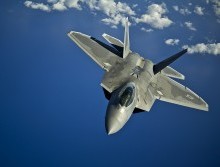The Syrian civil war is rapidly turning into a mini-world war, with the United States and Russia on opposite sides. The Americans have never liked Syrian President Bashar al-Assad, and the Russians find him a useful ally in the Middle East—in large part because he opposes the US and its friends. And right now, the Russian side of this quasi-cold war is winning—and it’s time the US realized that and did something new. Your tax dollars, gas budget, and quite possibly safety, depend on it.
The Russians have been arming the Assad regime throughout the civil war, despite the fact that Assad has time and again used his military to slaughter his own civilians. And now, the Russians are reportedly working to send Assad advanced air defense systems that can shoot down planes and missiles. The US, meanwhile, is still debating—read: hemming and hawing—about doing anything extra for the rebels.
What’s the result of this? The Russian aid will empower Assad’s regime and keep a brutal civil war running. Syrian chemical weapons will have an even greater chance of reaching terrorists that are multiplying in Syria and could be used in Europe or the US. The threat of a major regional war that will spike gas prices will grow, as will the amount of tax dollars the US will send over in humanitarian aid—which is needed more and more for the devastated Syrian civilians.
The US, meanwhile, can put a stop to all these threats and this hemorrhaging of funds. It just needs to work with its European allies to better arm and equip the rebels and damage the regime’s ability to keep up the fight. But alas, that has not happened.
The US needs to learn from Russia—it’s time to turn up the heat. When the Israelis started bombing missiles bound for terrorists, the Russians increased their rhetoric and weaponry in and around Syria. In other words, rather than back down to decrease tensions, the Russians realized now is the time to retake control of the situation.
By threatening to send in better weapons and reportedly sending in ships to the region, Russia has strengthened Assad, offered him hope and effectively prolonged this civil war. The US needs to counteract that—and soon. How?
The best step would be to take Russia’s bet and raise it, to use a poker reference. If the Russians are threatening to arm Syria with better weapons, the Americans should tag-team with the UK and France and actually, publicly, start arming the rebels.
If the Russians will send warships to the region, the Americans should send in fighter jets, bombers, missile launchers and Patriot air defense batteries to Turkey and Jordan and make it clear they are prepared to launch a full-scale no-fly zone over Syria. That would cripple Syria’s main advantage over the rebels—its air force—and put Russia-built helicopters and air defense systems at risk.
Tell the Russians we seek no conflict with them, but make it clear they can’t scare us away from our interests either. Assad will get the message, and just in time for the upcoming international conference on Syria.
Will it end the fight? Probably not. But right now Assad is winning and the Russians are a big reason why. If the US doesn’t respond, stronger than ever, they are looking at a scenario far worse than it is now.
Russia doesn’t want a fight with the US—in Syria or elsewhere. And right now the US isn’t fighting, so Russia can do whatever they want. It’s time to literally bring in the big guns, stop talking and break out the big stick.
Sometimes peace requires fighting. Sometimes risking more now limits what’s at stake later. Sometimes money spent now will save it later. Sometimes to win at diplomacy you have to be willing to go to war—hoping war won’t be necessary. These are the sometimes. The time to act is now. Because time is running out.
(By Joshua Spurlock, www.themideastupdate.com, May 19, 2013)

